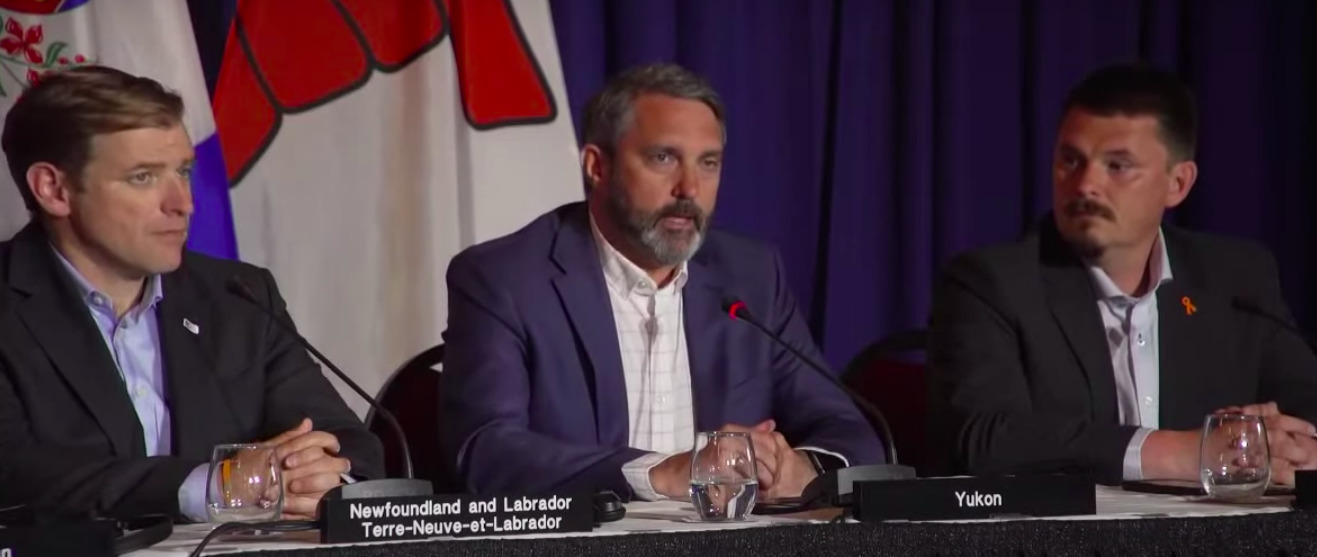‘We’re ready when Ottawa’s ready’: Canada’s premiers await federal response on health care
Nunavut Premier P.J. Akeeagok said he’s looking forward to discussing increase in federal health care spending.

The federal government has yet to respond to a request from Canada’s premiers for an increase in federal spending on health care, says Nunavut Premier P.J. Akeeagok.
“We’re, right now, really only asking Ottawa to come to the table,” he said in an interview.
“We’re ready when Ottawa’s ready.”
Akeeagok met with Canada’s 12 other premiers July 11 and 12 in Victoria, B.C., to discuss a number of issues, including health care.
It was at this meeting the premiers, together known as the Council of the Federation, made their request that the federal government increase its share of health care costs from 22 percent to 35 percent through the Canada Health Transfer.
The Canada Health Transfer is the largest federal transfer to provinces and territories and provides long-term funding for health care across the country.
The premiers’ request would require the federal government to pay an additional $27.6 billion annually, according to a February 2021 report from Canada’s provincial and territorial finance ministers.
Akeeagok said the discussion isn’t yet at a point of dividing up dollars between provinces and territories, and it’s too soon to say exactly what Nunavut would do with its share of that money.
However, the North’s unique challenge of being remote is a large part of the conversation for Nunavut.
“We’re not immune to the shortages and the impact we see in terms of health care,” Akeeagok said.
Nunavut NDP MP Lori Idlout said in an interview she supports the premiers’ call on the federal government.
“The current system is obviously not working. It hasn’t worked for many years,” she said of health care in Nunavut.
It’s important to recognize the abilities that already exist in communities and to figure out what services can be offered locally, rather than having to travel for, such as midwifery programs, she said.
Idlout used the high demand for counseling services in Nunavut as an example. She said some of the reliance on mental health professionals should instead be put on “local providers,” like elders.
There also needs to be more investment in programs that allow Inuit to join the health-care workforce in the territory, she said, whether it be for nursing or home care to look after elders.
But that’s only part of the solution, she said. Housing, especially in the context of overcrowded homes during COVID-19, is a factor also.
“Any kind of funding that ends up going to Nunavut, I think, always has to have at the core of it a form of increasing housing, addressing the old housing,” Idlout said.
“And making sure that we have more families that are able to feel safe, secure and comfortable in homes that will allow them to be healthy within each community.”
Additional reporting by Meral Jamal.